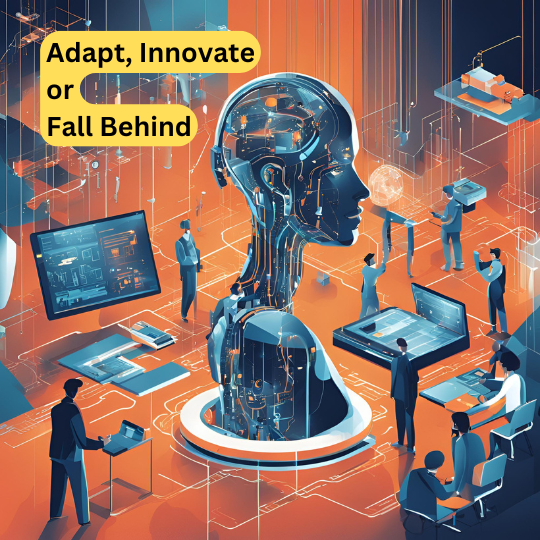
The rise of artificial intelligence (AI) has sparked widespread concern about job losses, industry disruptions, and economic shifts. From automated customer service to AI-powered legal assistants, the fear of mass unemployment looms large. But is this anxiety justified? Should professionals in various fields brace for obsolescence, or is there an opportunity to adapt and even thrive?
AI's Impact on Jobs
AI is here to stay. It's no longer a futuristic concept—it's an evolving force shaping industries in real-time. While some worry about AI eliminating jobs, the reality is more nuanced. Yes, automation is replacing certain roles, but it's also creating new opportunities.
When asked which jobs are most at risk, ChatGPT provided a list, including:
- Data entry clerks
- Telemarketers
- Assembly line workers
- Customer service representatives
- Truck and taxi drivers
- Toll booth operators
- Cashiers
- Paralegals
- Financial analysts
- Data analysts
However, AI also emphasizes the importance of human skills—creativity, critical thinking, and emotional intelligence—that remain irreplaceable. While AI may automate tasks, it requires human oversight, innovation, and ethical considerations.
AI Job Losses Are Already Happening
AI-driven layoffs are no longer hypothetical. A 2023 study revealed that thousands of employees had already lost jobs due to AI automation. Companies cite efficiency and cost-cutting as primary reasons, and the trend is expected to continue. IBM's CEO, Arvind Krishna, predicted that up to 7,800 jobs in his company could be replaced by AI within five years.
A Washington Post article even likened AI's workforce transformation to the Industrial Revolution. While some industries are eliminating roles, others are seeing increased demand for AI-related expertise, proving that adaptation is key.
AI's Growing Pains
Despite AI's potential, it's not without flaws. Companies relying too heavily on AI may find that human intervention is still necessary. Two industries highlight these growing pains:
1. Fast Food Automation
AI-powered order-taking systems at McDonald's, Wendy's, and Dunkin' have received mixed reviews. Customers report incorrect orders and frustrating experiences. While AI streamlines operations, it struggles with nuanced human interactions.
2. AI in Hiring
Automated hiring processes have also faced criticism. Journalist Amanda Claypool described her struggle to apply for fast food jobs through AI-driven chatbots, which led to incomplete applications and confusion rather than efficiency.
AI's Positive Disruption: The Publishing Industry
While AI disrupts some sectors, it enhances others. In publishing, AI is revolutionizing content creation, research, and marketing. Here's how:
- Research & Fact-Checking – AI speeds up the research process, reducing time spent verifying information.
- Content Development – AI helps generate story ideas, character names, and plotlines.
- Overcoming Writer's Block – AI-generated prompts inspire creativity.
- Editing & Proofreading – AI tools refine language, grammar, and structure.
- Social Media Management – AI automates content scheduling, audience targeting, and analytics.
The Key to Survival: Adaptation
Rather than fearing AI, professionals should embrace its potential. The key to thriving in the AI era is learning how to work alongside it. By developing new skills and staying informed, individuals can leverage AI as a tool rather than view it as a threat.
AI will continue evolving, but one thing remains constant: those who adapt will not only survive but also find new avenues for success in this transformative era.
